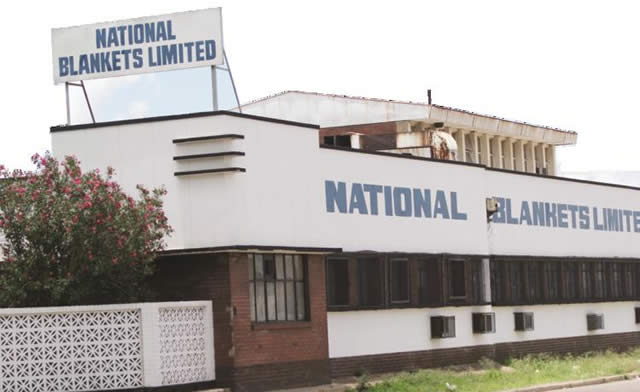National Blankets slides towards liquidation

BULAWAYO-based textile company, National Blankets, is now beyond resuscitation stage and the judicial manager is now in the process of liquidating the firm.
The company, among the second city’s most iconic and oldest, appeared to be on its way out of the woods when in 2014, creditors agreed that all debt be converted to equity at a rate of $0,50 per ordinary share.
The creditors, however, were not keen on putting new money into the company, which borrowed heavily.
National Blankets has been under judicial management since 2012 due to viability concerns. It received a $500 000 loan facility from the Central African Building Society (CABS) under the Distressed and Marginalised Areas Fund (Dimaf) in 2013 but the money failed to change its fortunes.
Also in 2013, the firm sold off some of its property to pension fund, the National Social Security Authority (NSSA) and settled its debt to the now defunct Capital Bank and service providers such as Bulawayo City Council, paying a combined total of $2.6 million.
In a letter to creditors, judicial manager Phillip Ndlovu said the company is now insolvent as the liabilities are significant, exceeding assets by a wide margin.
“It is not realistic to expect that the company will become a viable concern. Instead, liabilities continue to increase with the results that the position is worsening.
“For this reason, it is my opinion that the company be wound up,” said Ndlovu.
The company faced a drastic fall in the demand for its products, which were woven blankets and no longer have a market, he added.
He said National Blankets uses equipment that was first installed in 1940, early into the Second World War that can only manufacture woven blankets and cannot be configured to produce highly knitted blankets currently on the market.
The company’s market included institutions such as prisons, hospitals, army police and humanitarian organisations, most of whom were failing to pay.
Ndlovu said in order to contain costs, the company resorted to retrenchments, which came at a huge cost to the company. — The Source











Comments